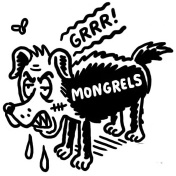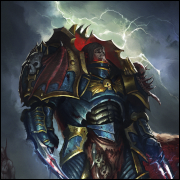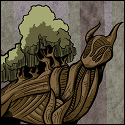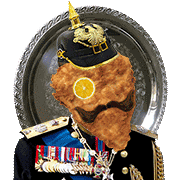|
On the topic of Russia I was looking for books on Soviet foreign policy. Or even good books on post colonialism.
|
|
|
|

|
| # ? May 15, 2024 06:16 |
|
Interested in two very different types of books: 1. A book on the history of the Quran. What we know about the historical facts surrounding wrote it, how it was written, and why it was written. I've read similar books for Christianity & Judaism and found them fascinating. 2. A book about the United States Foreign Policy/Interventions post World War II, specifically focusing on the events/times which the USA has acted against democratic governments for it's own self interests. Doing some googling on this I've seen a few suggested: Deterring Democracy by Chomsky, Confronting the 3rd World; United States Foreign Policy 1945-1980 by Kolko, Killing Hope: U.S. Military and CIA Intervnetions Since World War II.
|
|
|
|
Megasabin posted:Interested in two very different types of books: For 2 you're going to want Kinzer's The Brothers, about the Dulles brothers and their use of regime change. The story cuts out at the mid 1960s with their deaths and retirements, but it's a key decade and perspective. US interventionism is always a continuation of the Dulles legacy, in one way or another.
|
|
|
|
Megasabin posted:Interested in two very different types of books: The First Muslim: The Story of Muhammad by Lesley Hazleton as well as its sequel After the Prophet: The Epic Story of the Shia-Sunni Split in Islam . they are both a good intro to the early history of islam and the contexts to various parts of the quran and the time period it all happend it.
|
|
|
|
Any recommendations on books about vikings and about Swedish history?
|
|
|
|
As I'm really enjoying the Making of the Atomic Bomb (Richard Rhodes) and the Great Deluge (Brinkley) and feeling awful about humanity, I've decided that I should go on a nonfiction book shopping spree for my birthday in a couple days. Here is my list so far - please critique it or add suggestions, please! Napoleon A Life The Vintage Guide to Classical Music The Rise and Fall of Ancient Egypt A Grand Delusion: America's Descent into Vietnam Thirty Year's War: Europe's Tragedy Hundred Year's War: Trial By Battle Blues People: Negro Music in White America Showdown at Shepherd's Bush Vampires, Burial and Death Religion and the Decline of Magic The Kingdom: Arabia and the House of Sa'ud ...phew! Culled a phew from the list as I was typing it up, so that's good. Still a ton of books, but I figure that if I can read 60 books in the first half of this year, I can devote some time in the second half to educating myself further in a variety of topics. (i mean I'm gonna keep reading genre stuff, and nothing can take terrible PNRs away from me, but hey! Gotta try to branch out more, it's good for me!)
|
|
|
|
This is probably a really difficult ask. But I am looking for books on the history of socialist economics in the Christian church. With right wing Christians almost all capitalist due to brainwashing it's difficult to find any discussion about the other side, which does exist, but is definitely a minority at this point. I've read articles from and about the left economics perspective in Christianity, but can't find any books on the subject.
|
|
|
|
Hamelekim posted:This is probably a really difficult ask. But I am looking for books on the history of socialist economics in the Christian church. With right wing Christians almost all capitalist due to brainwashing it's difficult to find any discussion about the other side, which does exist, but is definitely a minority at this point. I've read articles from and about the left economics perspective in Christianity, but can't find any books on the subject. If you don't mind an insider view, there's "The Catholic Worker Movement: Intellectual and Spiritual Origins", by Mark and Louise Zwick, which looks at the founding of the Catholic Worker movement. I've heard that's pretty good. For a more radical view, Gustavio Guitierrez (One of the founders of Liberation Theology) and Cardinal Muller wrote "On the Side of the Poor: The Theology of Liberation", which is a look at that movement. There's also Paul Ham's "New Jerusalem" and Anthony Arthur's "The Tailor-King - the rise and fall of the Anabaptist Kingdom of Munster", both about the Anabaptists of Munster. I've also heard Spencer Klaw's "Without Sin", about the Oneida Community, is supposed to be pretty good.
|
|
|
|
you're gonna have a hard time if you're looking for books on 'the Christian church' as there hasnt been just one of those since 1054 that said, in addition to the recs right above me, john cort's christian socialism: an informal history is pretty good quote:right wing Christians almost all capitalist due to brainwashing this is a) oversimplified, and so not a position that will serve you well if you want to approach this with any kind of nuance, and b) projecting american Evangelicals onto the entirety of global Christendom, which is a common american thing to do and also very stupid
|
|
|
|
|
StrixNebulosa posted:As I'm really enjoying the Making of the Atomic Bomb (Richard Rhodes) and the Great Deluge (Brinkley) and feeling awful about humanity, I've decided that I should go on a nonfiction book shopping spree for my birthday in a couple days. Trial by Battle is excellent. I'm halfway through it now and fully intend to read the remaining volumes. Lord Sumption's speeches and articles on matters of legal history are also quite interesting - he ties them into broader history which adds interest for people who aren't law nerds (or at least I think so but may not be a good judge as a law nerd myself).
|
|
|
|
Neurosis posted:Trial by Battle is excellent. I'm halfway through it now and fully intend to read the remaining volumes. Lord Sumption's speeches and articles on matters of legal history are also quite interesting - he ties them into broader history which adds interest for people who aren't law nerds (or at least I think so but may not be a good judge as a law nerd myself). Yeah, I saw that one recced in this thread, read some of it from the local college library and now I must own it myself. To own it, and so I can finish reading the first volume - I have a bad habit with library books where I never finish them before I return them, so, well, time to buy stuff.
|
|
|
|
Thanks for the book references. I'll check them out.
|
|
|
|
Neurosis posted:Trial by Battle is excellent. I'm halfway through it now and fully intend to read the remaining volumes. Lord Sumption's speeches and articles on matters of legal history are also quite interesting - he ties them into broader history which adds interest for people who aren't law nerds (or at least I think so but may not be a good judge as a law nerd myself). Wilson's book on the Thirty Years' War is pretty good as well. In particular he's pretty good a breaking things into discrete subjects and working his way through them while still trying to convey how the various bits fit together. The traditional problem with narrative histories being what I just mentioned about Sumption---tending to collapse complexity in order to maintain the narrative throughline---and the traditional problem with analytic histories being that they tend to get siloed---which has a tendency to obscure the larger context---and Wilson seems to split the difference fairly well.
|
|
|
|
StrixNebulosa posted:As I'm really enjoying the Making of the Atomic Bomb (Richard Rhodes) and the Great Deluge (Brinkley) and feeling awful about humanity, I've decided that I should go on a nonfiction book shopping spree for my birthday in a couple days. You should throw Dark Sun in there, Rhodes' book about the hydrogen bomb. I think it's a better book beyond just being the second part of the story.
|
|
|
|
Those two nuclear bomb books are great adds for me. Iím reading Midnight in Chernobyl right now and itís getting me on a horrifying non-fiction kick.
|
|
|
|
Grand Fromage posted:You should throw Dark Sun in there, Rhodes' book about the hydrogen bomb. I think it's a better book beyond just being the second part of the story. Seconding this.
|
|
|
|
Any recommendations for the War of Spanish Succession?
|
|
|
|
SubG posted:Yeah. The only caveat that I'd throw out is that Sumption's books on the Hundred Years' War are all narrative histories, and so he often sorta slips past some subjects that I wish he'd dive deeper into. It's all very readable as far as magisterial British multivolume history monographs go, though. Yeah, he says as much in the introduction. I think it's somewhat necessary for these sweeping histories, as you say. I'm probably less worried about it than I would be if I were reading a book about something which is a major contemporary controversy, where it is harder to trust that the author's mind was dispassionate in making qualitative judgments on how to resolve controversies (I know academics have their own little turf wars which can become heated but I think it's probably less of a factor here than when reading, I dunno, an analysis of the New Deal).
|
|
|
|
Neurosis posted:I'm probably less worried about it than I would be if I were reading a book about something which is a major contemporary controversy, where it is harder to trust that the author's mind was dispassionate in making qualitative judgments on how to resolve controversies (I know academics have their own little turf wars which can become heated but I think it's probably less of a factor here than when reading, I dunno, an analysis of the New Deal). This is a highly incorrect thing to believe about academics.  I have seen people get loving enraged about Macedonians. And I don't mean the modern spats over the name in Greece. Grand Fromage fucked around with this message at 03:46 on Aug 1, 2019 |
|
|
Neurosis posted:(I know academics have their own little turf wars which can become heated but I think it's probably less of a factor here than when reading, I dunno, an analysis of the New Deal). hahahahaha hahahahahahahahaha
|
|
|
|
|
I have seen grad students engage in historiographische knife fights at conferences because their advisors had a beef going back a few decades. There are what amount to multi-generational feuds over poo poo like theory and methodology. Edit: apparently my phone autocorrects historiographical to the German. Fun.
|
|
|
|
Oh no not the Germans
|
|
|
|
|
Bilirubin posted:Oh no not the Germans I have strong opinions on Hans DelbrŁck  (lol, not really)
|
|
|
|
chernobyl kinsman posted:hahahahaha Alright as I reflect I may have been optimistic. Oh well, at least whatever blind spots I have will matter less if I talk about what I learn elsewhere...
|
|
|
|
What can I read about the period of Company rule in India, including the 1857 rebellion and aftermath?
|
|
|
|
Vivian Darkbloom posted:What can I read about the period of Company rule in India, including the 1857 rebellion and aftermath? The Honourable Company by John Keay
|
|
|
|
Anybody have recommendations for the Russian region during the decline of Mongol authority, the emergence of Lithuania, and then the eventual ascendancy of Muscovy? Roughly 1300-1600.
|
|
|
|
PittTheElder posted:Anybody have recommendations for the Russian region during the decline of Mongol authority, the emergence of Lithuania, and then the eventual ascendancy of Muscovy? Roughly 1300-1600. Yes. I can't help with the emergence of Lithuania, but there are some really good books about the rise of Muscovy. Russia's First Civil War: The Time of Troubles and the Founding of the Romanov Dynasty by Chester Dunning is about the Time of Troubles, a roughly 15-year period around 1600 when Russia fought a series of civil wars and fought off a series of foreign invasions, especially by Poland. Ended with the ascension of Mikhail Romanov as tsar in 1613 and the founding of the Romanov dynasty. Also features the fun of multiple "false Dmitriis", pretenders to the Russian throne who each claimed to be the recently-murdered Dmitrii Ivanovich, son of Ivan the Terrible. I haven't read Dunning in a while but I remember him striking a good balance between narrative of this time period and academic analysis of what was important and distinct about it. Ivan the Terrible: First Tsar of Russia by Catherine de Madariaga is all about Ivan the Terrible, one of Russia's most famous rulers. Also a great way to learn about 16th-century Russian history since Ivan ruled from 1533 (when he was three years old) until his death in 1584. De Madariaga has a very negative view of Ivan as a person (probably justified) but clearly explains the enormous influence he exerted on Muscovite development. The Elusive Empire: Kazan and the Creation of Russia, 1552-1671 by Matthew P. Romaniello is about the conquest of Kazan in 1552 (by Ivan the Terrible) and then about how the Muscovite and early Russian state ruled and integrated a large population of Muslim Tatars. He focuses on Kazan but you can kind of extrapolate from Kazan to Russian rule in other conquered khanates like Astrakhan, Sibir, and Nogai. I think it's an important book to understand how Russia transitioned from being a pretty unitary state of ethnic Russians to being a multiethnic empire in the span of about a decade as Ivan conquered Kazan and then Astrakhan, and then the long, long legacy of how to manage being a diverse state. And my top recommendation, though it's slightly outside your time period: Cartographies of Tsardom: The Land and Its Meanings in Seventeenth-Century Russia by Valerie Kivelson. This is just a phenomenal, beautiful book about how Muscovy and Muscovites understood, interpreted, and used space, built around an amazing sourcebase Kivelson found of hundreds of old maps, many of which are reproduced in colour within the book. It's gorgeous, her analysis is great, and it's been extremely influential in Russian history over the last decade.
|
|
|
|
vyelkin posted:The Elusive Empire: Kazan and the Creation of Russia, 1552-1671 by Matthew P. Romaniello is about the conquest of Kazan in 1552 (by Ivan the Terrible) and then about how the Muscovite and early Russian state ruled and integrated a large population of Muslim Tatars. He focuses on Kazan but you can kind of extrapolate from Kazan to Russian rule in other conquered khanates like Astrakhan, Sibir, and Nogai. I think it's an important book to understand how Russia transitioned from being a pretty unitary state of ethnic Russians to being a multiethnic empire in the span of about a decade as Ivan conquered Kazan and then Astrakhan, and then the long, long legacy of how to manage being a diverse state. My favorite story from when I lived in Kazan was learning that Ivan was absolutely obsessed with the Tatar princess Söyembikä, to the point where he wanted to take her as his wife back to Moscow. She said, finally, "okay if you build me the tallest tower I've ever seen, I'll marry you." So Ivan did, and came to claim his new bride. Söyembikä calmly walked to the top of the tower and jumped off to her death. It's the most Russian folk story.
|
|
|
|
vyelkin posted:
Yeah I'm primarily looking for earlier events, but this sounds very interesting, just how the Muscovite state integrated all that land is fascinating, and I imagine it's a reflection of the earlier period. quote:Cartographies of Tsardom: The Land and Its Meanings in Seventeenth-Century Russia by Valerie Kivelson. This is just a phenomenal, beautiful book about how Muscovy and Muscovites understood, interpreted, and used space, built around an amazing sourcebase Kivelson found of hundreds of old maps, many of which are reproduced in colour within the book. It's gorgeous, her analysis is great, and it's been extremely influential in Russian history over the last decade. You had me at "hundreds of old maps"
|
|
|
SubG posted:Yeah. The only caveat that I'd throw out is that Sumption's books on the Hundred Years' War are all narrative histories, and so he often sorta slips past some subjects that I wish he'd dive deeper into. It's all very readable as far as magisterial British multivolume history monographs go, though. Sumption is amazing. When I was a trainee solictitor, my team had a dispute once with him as barrister for the other side. He had this incredible theatricality, kind of shaking his shoulders as if there were wings attached before standing up slowly and then tearing our client's case to bits. I can't even remember which barrister represented us; the judge was 100% with Sumption and that was clear after the first couple of minutes.
|
|
|
|
|
Any good histories of the Kashmir conflict?
|
|
|
|
Currently reading this book: Itís really loving good. Great look at the Sepoy Mutiny using the repatriation of a skull found in an English pub as the hook. It does a really great job of showing how the mutiny fit into an early anti-Colonial worry about cultural damage and replacement. Highly recommend.
|
|
|
|
team overhead smash posted:Any good histories of the Kashmir conflict? Maybe hold off for a few years - a new chapter is about to be written! 
|
|
|
|
Im three chapters into the newest Edmund Morris bio on Edison and this guy is a lunatic. Nothing better than a man who is extremely deaf trying to engineer the highlight fidelity recording disks and processes. And so much antisemitism from his best friend Henry Ford
|
|
|
|
Cyrano4747 posted:Currently reading this book: I read this on your recommendation and also really enjoyed it.
|
|
|
|
So Iím going to Korea in two months and Iím actually rather ignorant about the Korean War outside the American perspective. I took a glance on Amazon but all the books I saw were either about individual battles or focused on the Americans. Iím looking for something that also takes the Korean (either North or South) into account. For example I read ďEmbers of WarĒ recently and really enjoyed how the author took into account both the VietMinh and French perspectives with critical analysis so wondering if something similar for the Korean War?
|
|
|
|
Solaris 2.0 posted:So Iím going to Korea in two months and Iím actually rather ignorant about the Korean War outside the American perspective. https://www.goodreads.com/book/show/18378010-brothers-at-war Brothers At War does this pretty well, IMO. Obviously the Americans and Chinese play huge roles, but the book is concerned most with the Korean perspective of events.
|
|
|
|
Any recommendations on the various wars of the 18th century, either individually or taken together? I just started re-reading Richard Holmes' excellent Redcoat: The British Soldier in the the Age of Horse and Musket and it's gotten me interested in the period again. I'm pretty well covered in post AWI/French Revolutionary/Napoleonic wars, but would like to try and sort out some of the earlier stuff like the wars of the Austrian/Spanish succession, Seven Years War, etc. Anything to do with the late 17th C and Louis XIV would probably be helpful to as my knowledge there is limited as well. Who the hell was that guy the Duke of Marlborough and why was he always fighting the French (and Bavarians?)?
|
|
|
|

|
| # ? May 15, 2024 06:16 |
|
i enjoyed this book on the 7 years war https://www.goodreads.com/book/show/17252.Crucible_of_War
|
|
|








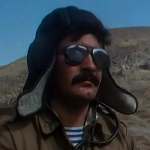
















 Yes, it's like a lava lamp.
Yes, it's like a lava lamp.








